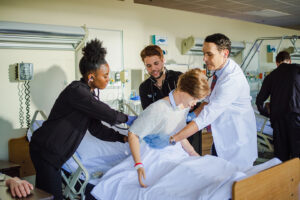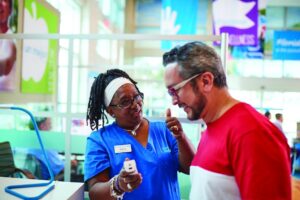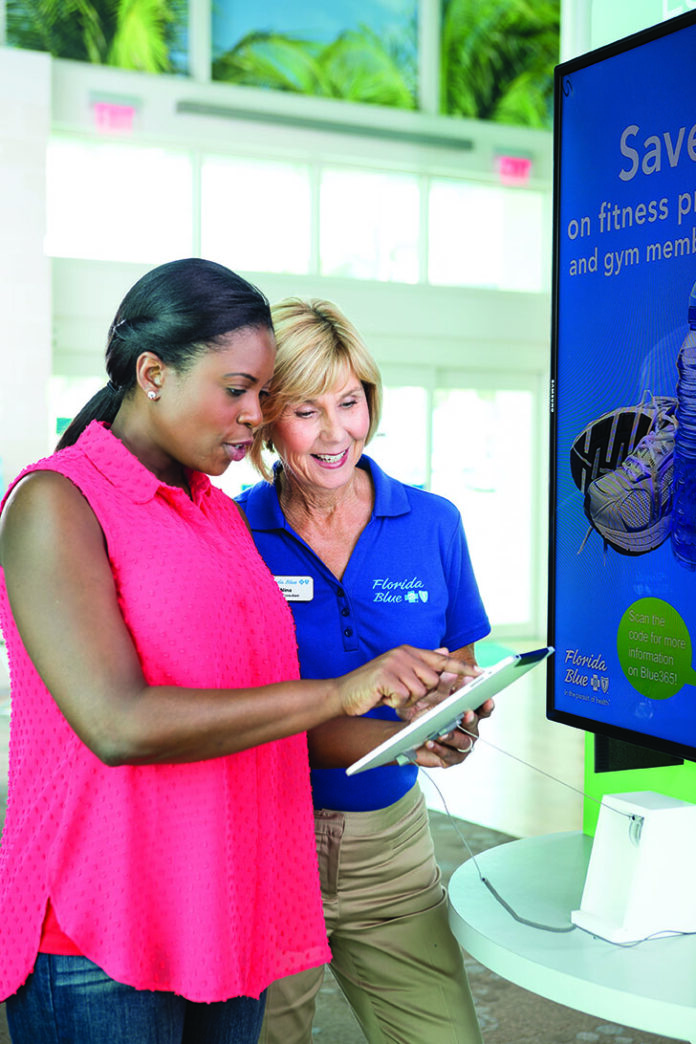


ORLANDO – The University of Central Florida is strengthening its commitment to help people live life to the fullest, thanks to two gifts from Florida Blue Foundation totaling more than $1 million. The funds will leverage the power of nursing to support healthcare, expand opportunities for medical students to work with underserved populations and improve health equity for homeless individuals in downtown Orlando.
Continuing its three-decade association with UCF, the philanthropic affiliate of the state’s leading health insurer is investing an additional $500,000 in the Florida Blue Endowed Professorship for Healthy Communities in UCF’s College of Nursing, growing an endowment that was established in 2003. The additional investment will enable UCF to move forward this spring with appointing a professor to that role. Additionally, Florida Blue committed $516,000 to UCF’s College of Medicine to involve more medical students in service learning as they help care for the area’s homeless. Operating through the Chapman Compassionate Care Clinic, increased numbers of participating medical students will grow the number of homeless individuals served.
“We remain steadfast in our commitment to strengthen local communities, so all Floridians have an opportunity to reach their full health potential,” said Susan Towler, executive director of Florida Blue Foundation. “These endowments demonstrate how collaboration can transform ideas into meaningful solutions that will improve health outcomes and address workforce shortages for the next generation of healthcare heroes.”
Solutions to Combat Nursing Shortages
Based on a Florida Hospital Association analysis, the state faces an overall shortage of 37,400 nurses by 2035. In addition, faculty shortages at nursing schools across the country are limiting student capacity at a time when the need for professional registered nurses continues to grow.
Chief among UCF’s strategies to address the shortage is the construction of the Dr. Phillips Nursing Pavilion, the new, larger home for the College of Nursing at Lake Nona. UCF will be able to graduate an additional 150 highly qualified, compassionate nurses each year thanks to the new space, which is scheduled to open for the 2025-2026 academic year.
Mary Lou Sole, dean of the College of Nursing, said the additional support for the Florida Blue Endowed Professorship for Healthy Communities will enable UCF nursing students to learn from a world-class faculty member who will lead efforts to educate the next generation of nursing scientists, advance UCF’s commitment to innovative teaching and research, enhance the college’s profile, and positively impact the health and well-being of Central Florida communities.
“Both UCF and Florida Blue Foundation are committed to the health and well-being of our Central Florida communities, and we are thankful for Florida Blue Foundation’s continued support,” said Dean Sole. “The endowed professorship is critical as we scale our nationally ranked programs to provide more access to a high-quality education and graduate more nurses, leaders, educators and researchers who are needed to care for our communities and ensure a healthier future for all.”
Care for Those Experiencing Homelessness
With rents rising, many people are living on the street for the first time. Homelessness has profound negative health effects, up to and including premature mortality. The Florida Blue Community Engaged Service-Learning Initiative will enable the College of Medicine to host the Chapman Clinic more frequently from the parking lot of the downtown Christian Service Center and increase the number of patients who receive services such as skin and wound care, over-the-counter medications, health screenings and hygiene kits.
Through the Florida Blue Foundation gift, Dr. Deborah German, UCF’s vice president for health affairs and founding dean of the College of Medicine, said students will gain the hands-on learning experiences that will better prepare them to provide the best care for the community.
“Burdened by disproportionate rates of chronic disease, addiction and mental illness, homeless people are some of our neediest patients,” said Dr. German. “Sadly, they often have sporadic or no access to healthcare. By expanding services at the clinic, we are increasing our ability to provide care to people experiencing homelessness while providing our students with real-life service-learning experiences that will make them better doctors.”







